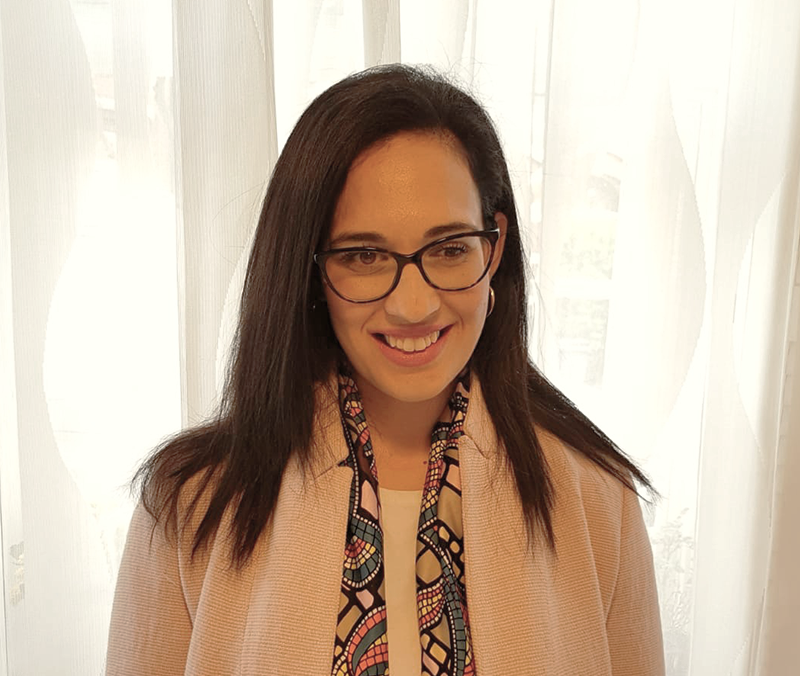In the latest of our lunch-bite webinar series, Marta Wolska, Operations Director at London Egg Bank, talks to Dr Shailaja Nair, Clinical Director and Elena Linara-Demakakou, Lab Manager and Quality Lead at London Egg Bank about the differences in approach and outcomes between using fresh or frozen donor eggs. London Egg Bank provides IVF treatment with both frozen and fresh donor eggs.
What is egg freezing and how does it work?
Eggs are frozen using a technique called vitrification, which turns them into a glass-like state. Once in this state, eggs can be stored at very low temperatures for years without losing quality, until the patient is ready to start treatment.
After egg retrieval, before doing anything we look at the quality of the eggs. If the eggs are mature enough and of a high enough quality, then we freeze them using our vitrification system and store them at very low temperatures. To be able to do this well you need to have a very good vitrification system and experienced staff who are skilled in dealing with the cycle of egg freezing and thawing.
At London Egg Bank we have frozen more than 30,000 eggs, and we have also thawed more than 10,000 eggs. We’re always looking to improve our processes and monitor our results carefully. We’re delighted to see that our eggs have a 92% survival rate. The fertilisation of these frozen eggs is equally good and compares with a fresh egg rate, and we're seeing 70 - 80% fertilisation rates, sometimes more. And most importantly the number of embryos that we can create from these frozen eggs is above 50% in most cases.
Another very important factor that we always look for is what percentage of patients not only have embryos to use for their first treatment but to keep for further treatment later. Over 85% of our patients do have extra embryos frozen for this reason.
Since 2015 or 2016 we have converted completely into using frozen eggs, and vitrification has transformed the way we offer treatment to patients.
How do you assess the eggs for suitability?
Only eggs that are deemed mature and with a good chance of being usable at a later date are frozen. We look for the egg to have a good internal cytoplasm and a robust-looking polar body, which is a structure that tells us that the egg is mature. If the egg is mature, it means that it's at the right stage to be either frozen or inseminated with sperm so that it fertilises, but if it hasn't reached that stage it's not ready and needs more time. We don’t freeze immature or poor-quality eggs, only eggs that are of good quality, are mature and are ready to go.
Having a good vitrification system means that you don’t damage the egg, and so you don’t change their chromosomal arrangements or the DNA.
We’re interested not just in the egg survival rate, but also in the outcome of patients using frozen eggs. We’ve analysed live births from fresh and frozen eggs and have seen no difference. We've also looked at congenital abnormalities that were self-reported by the patient. While we can’t know of abnormalities that patients didn't report, we’ve looked at preterm births and any other implications that they might have had, and we couldn't see a difference when we compared fresh to frozen egg outcomes in our data.
Since we were established in 2013, London Egg Bank has consistently delivered the UK's highest recorded egg survival rates after freezing, at over 90% in all age groups. We’re delighted to see that our donor eggs have about 92% egg thaw survival rate. The fertilisation of these frozen eggs is equally good and compares with a fresh egg rate, and we're seeing 70 - 80% fertilisation rates, sometimes more. And most importantly the number of embryos that we can create from these frozen eggs is above 50% in most cases.
How does using frozen eggs improve patient care?
Vitrification is a relatively new process that has revolutionised the way that we manage and deal with egg donation.
While fresh donor eggs are still popular, there are several drawbacks. For example, recipients who want to undergo a fresh embryo transfer need to be available at the same time as the egg donor. They and the donor are both asked to take the contraceptive pill to regulate and synchronise their cycles. The recipient also has to take an injection creating an artificial menopause, so that their natural cycle doesn't interfere with the process.
Fresh egg donation can also be unpredictable, as one can also never be certain about the donor’s response to stimulation. In about 10% of cases, the donor may not respond as well as we had hoped for, meaning that both the donor's and recipient's cycles has had to be abandoned.
Similarly, during egg collection, there have been instances where fewer eggs were retrieved than expected. This sometimes led to cycles being delayed, canceled, or yielding suboptimal results – primarily because both the donor and recipient had to undergo treatment simultaneously.
Now that we can use frozen eggs with the same confidence we used to have with fresh eggs, we have become used to a degree of convenience. Recipients can start treatment whenever they want. The donor has already finished her part of the treatment and the collected eggs are ready to be used at any time.
This has been a significant clinical advancement, revolutionizing the way we approach egg donation, with outstanding results – we have a 50% clinical pregnancy rate per embryo transfer, and half of our recipients conceive after a single embryo transfer. Additionally, over 85% have more than one embryo from just six eggs. This is truly a game-changer.
Does the timing of egg freezing make a difference to the outcome?
The time that the eggs were frozen doesn't make any difference to the outcome, due to our round-the-clock monitoring. All of our tanks, which store the frozen eggs in liquid nitrogen, are monitored and maintained 24/7. And we know the exact temperature and stability of the tank at any given time, to ensure that all eggs are kept in optimum conditions. As such, you can confidently use eggs that were frozen two years ago or two days ago!
When it comes to egg freezing for fertility preservation, rather than egg donation, the HFEA (the UK fertility regulator) is looking to extend egg storage limits from 10 to 55 years. Without vitrification, this length of storage would simply not be possible, and the data is available to back up the confidence of this decision.
Does using frozen eggs affect the quality of frozen embryos?
No, the quality is not affected in any way – and we have the patient data to prove this.
We're hitting over 50% success in the last year for frozen embryo transfers with frozen eggs. Having this level of confidence means that, in 99% of our cycles, we only put one embryo back to reduce the risks of multiple pregnancies.
Do you have experience with high sperm DNA fragmentation being an issue when using frozen donor eggs versus fresh ones?
We don’t see a significant difference between fresh and frozen eggs, but we look at every patient individually and we try to tailor the treatment to them. For example, if we have a patient with high DNA fragmentation, there are often ways that we can work around it, either with how we prepare the sperm or with the way that we're injecting the sperm into the egg, ensuring that we have lower DNA fragmentation and a lower percentage of oxidative stress.
Does transporting eggs affect success rates?
Most of our donors are recruited in London or Cardiff and eggs are then shipped to the right location when needed for treatment. Transporting eggs doesn’t affect their viability because we’re experienced with both national and international transport, with very robust protocols.
It's important to note that when we do transport eggs we monitor them very closely, so that we know the complete timeline of their journey – how they’ve travelled, whether there was any fluctuations in temperatures, and so on. This means that there should be no difference in clinical outcomes.

Shailaja Nair, Clinical Director
Dr Shailaja Nair is the Clinical Director and a founding member of London Egg Bank. She has more than 20 years' experience in fertility and assisted reproduction. Before joining London Women's Clinic, she worked in West London as an Associate Professor in a large teaching hospital and at the Cromwell IVF programme. Renowned for her passion, Dr Nair has extensive experience in all aspects of assisted conception, with a special focus on egg donation and cryobanking.

Elena Linara- Demakakou, Lab Manager and Quality Lead
Elena has 10 years’ experience in embryology and is qualified in biomedical sciences, prenatal genetics and fetal medicine, and clinical embryology. Her interests span from oocyte and embryo vitrification, prenatal genetics, and quality management, and she has gained valuable decade-long experience in intrauterine insemination. Before joining London Women's Clinic she worked as an embryologist, andrologist and as Deputy Sperm Bank manager.
You can find out more about your fertility by taking a fertility health check. We’ll help you to work out a plan of action and help support your choices about your future fertility.
